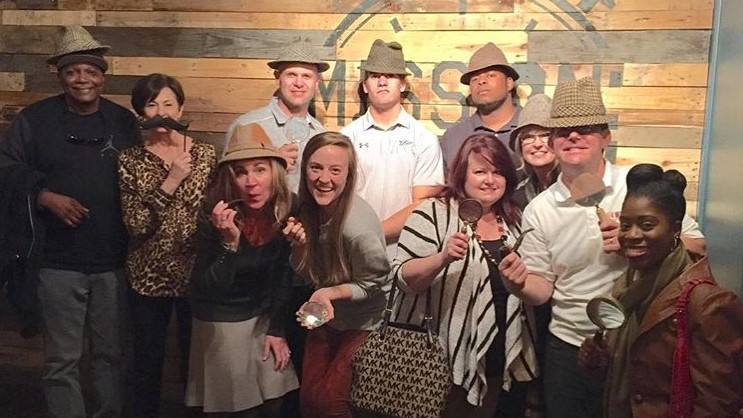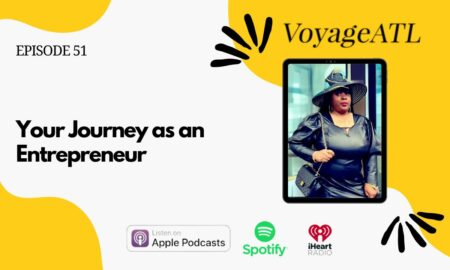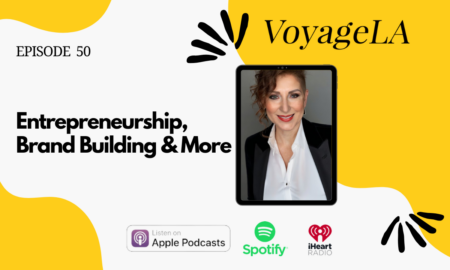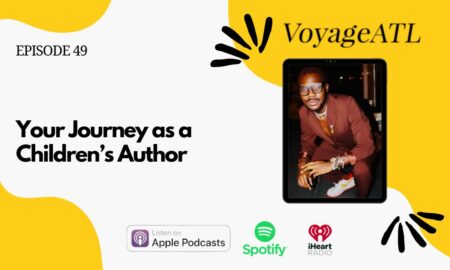

Today we’d like to introduce you to Chris Fitzgerald.
Chris, can you briefly walk us through your story – how you started and how you got to where you are today.
I grew up on the south side of Atlanta off Cascade Road, but starting around 3rd grade, I began going to school up in the Dunwoody area where my parents perceived the schools to be better than what was provided in the area we lived in. As I look back, that was the catalyst for recognizing the disparity between what was offered in some communities versus others. Over the next few years, until my freshman year in high school, I ended up going to a different school every year until 9th grade because of our family moving around or my parent’s school preferences for me and my sister. We moved back to Georgia in 7th grade, but it wasn’t until I got to high school, that I finally had the opportunity to go through all the grades at the same school. My experience growing up and constantly changing schools, cities and friend groups made it easy for me to connect and meet different people from different back grounds. As I reflect on that, the negative of so much transition was that I never really knew who I was, I always seemed to be whatever helped me fit in within the new environment.
I graduated with a degree in Sports Management from the University of Georgia and proceeded to train and coach basketball, take on a couple internships and then eventually began working in the sports marketing field. After a few years of that, I found myself seeking a new direction for my career. After interviewing and even beginning to train for an organization in Atlanta, I was introduced to an opportunity to intern at Desire Street Ministries. For a 25-year-old, at that point in my life, the prospect of another internship was not the most ideal, but there was something about the organization that drew me to it. Five years later, I’m still with Desire Street, working to revitalize neighborhoods through spiritual and community development. Neighborhoods who don’t have access to education and resources that my parents made a priority to make sure I had. Every day, I get the immense pleasure of working with leaders who have strategically and purposefully dedicated their lives to pouring themselves into these underappreciated neighborhoods and people. So, as they pour themselves out, Desire Street seeks to fill those leaders back up and support them in the callings and efforts they have so courageously stepped into.
It’s interesting because as I spent most of my life trying to fit in and find myself, it’s in this work that I’ve found myself through spending time with people who have been pushed to the margins of our society.
Great, so let’s dig a little deeper into the story – has it been an easy path overall and if not, what were the challenges you’ve had to overcome?
It has and it hasn’t. I consider myself incredibly blessed for the opportunities I have had. However, no matter how someone grows up, each person struggles with their own obstacles and challenges. I think that’s one thing we tend to forget as we fall into the comparison trap. One of my biggest struggles has always been self-confidence, which I attribute partially to always questioning who I was. When you spend a majority of your life just trying to fit in, you really don’t get a chance to figure out who you are. You become what your environment requires of you. When life slowed down for me, things got scary as I fell into occasional depression. So, I always stayed busy or around people. Because if I stopped or slowed down, I would go in and out of depression and shame and guilt would always follow close behind. Questioning the legitimacy of my struggles compared to others only looped the cycle. What did I have to complain about? Compared to the poverty I would experience in other countries or in too many pockets of America, I had it pretty good.
If I ever allowed people to peak inside what was going on between my ears, it was ugly, disabling and at times unbearable. So I pushed it down and numbed it with people and experiences. Through some incredible people I have allowed myself to slow down and seek to access that part of me I have been dismissing for so long, I began to learn how to listen to those voices with a different perspective and give them a different type of value. As a good friend of mine has said, look at them with curiosity versus contempt. The voices of shame and guilt became road maps to getting to the root of my despair. I was suppressing the most authentic version of myself. I found a part of myself that I have always been protecting, but I needed to embrace and uplift the world trusting I wouldn’t be defeated if the world rejected my authentic self. Growing up a Christian, this was a new and refreshing way of experiencing MY relationship and walk with God. Turning some of my deepest struggles on the inside, into some of my greatest strengths. Drawing power from empathy and love for myself along with others. Learning what it truly means to love others as I love myself. Or some would say, treat other’s how you want to be treated. But how often do we focus on the second part of those phrases? How do you love or treat yourself?
Desire Street Ministries – what should we know? What do you guys do best? What sets you apart from the competition?
Desire Street Ministries is an organization that was founded in New Orleans as an on the ground ministry serving the 9th Ward of New Orleans through a focus on educational, spiritual and community development. That neighborhood was just one example of thousands around our country that are hidden gems covered in distorted accusations and a lack of access to resources and opportunity. After Hurricane Katrina, the efforts of the founder seemingly washed away by the floods. After a couple years of scrambling and an incredible commitment to the displaced students of the ruined “Desire Street Academy”, the organization was at a crossroads and in need of a new direction. Desire Street decided to do two things: 1) Seek to rebuild and attempt to restore hope in the 9th ward of New Orleans and 2) Seeking leaders who have begun a good work in their own respective neighborhoods and encourage, equip and connect them so that they can be strengthened to overcome the incredible odds facing them and their neighborhoods. (The second decision led to moving the operation to Atlanta.)
Now, that Desire Street has rebuilt the facility in New Orleans and supported the leaders leading that effort, we have positioned ourselves to be able to serve ministry and community leaders primarily but not only in the southeast. We hide our success in the success of these other (separate) organizations. Thanks to the support and donations from our generous donors we have the opportunity to support and serve these leaders, their families, and in turn impact more neighborhoods than what was originally envisioned.
What sets us apart from others, is the depths at which we get to be involved in these leaders lives. We have created this small community of leaders that have become like a family. They pray for each other, support each other’s organizations and are so ingrained in each other’s lives despite being hundreds of miles apart. One of the biggest reasons that people in this line of work “burn out” and quiet is because it’s such isolating work. When you choose to invest yourself in an under-resourced community, many people turn to you as a leader. When you are exposed to the same day to day challenges that others in the neighborhood live in, it is not only burdensome but disheartening. Counselors, family members and close friends can feel for you, but don’t always “get it”. When these leaders get to meet another person who knows their struggles before even speaking a word, it is refreshing, encouraging and life-giving.
Along with providing a community for these leaders to support each other, we seek to point them towards resources that will help them and their organizations as well as continually encourage them with our staff as well as “coaches” who have experience working in the same context. The work we have been able to do with a few, we hope to provide access to information and best practices to those we are not in a current position to specifically serve.
What moment in your career do you look back most fondly on?
My proudest moment, fortunately, recurs for me weekly, which is experiencing the people I have gotten the chance to meet through this line of work. There are so many incredible people who have had a profound impact on my life. The relationships and authenticity of the communities I have been exposed to have forever changed my perspective and capacity for loving another human being. The opportunity to see any person past their circumstances is a unique vantage point that I hope I never lose and I hope others allow themselves to experience.
Contact Info:
- Address: 600 Means Street NW
Suite 110
Atlanta, GA 30318 - Website: www.desirestreet.org
- Phone: 678-681-3979
- Email: cfitzgerald@desirestreet.org
- Instagram: @desirestreet
- Facebook: https://www.facebook.com/desirestreet
- Twitter: @DesireStreet







 Image Credit:
Image Credit:
Desire Street Ministries
Getting in touch: VoyageATL is built on recommendations from the community; it’s how we uncover hidden gems, so if you know someone who deserves recognition please let us know here.



















